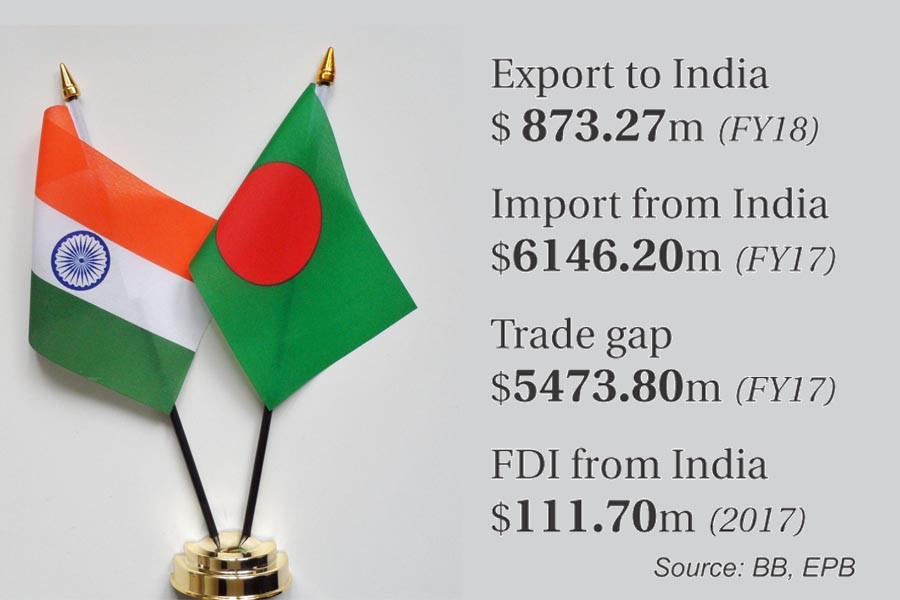India is pressing Bangladesh to sign a comprehensive economic partnership agreement (CEPA) covering various aspects of economic relations, officials said.
The neighbouring economic giant first raised the issue early this year at the commerce-secretary level meeting and in July gave a reminder to the matter, they said.
Now the issue remains on top of the Indian agenda for talks between the commerce ministers of two countries to be held next week in Dhaka.
Indian commerce and industry minister Suresh Prabhu will lead a 10-member delegation in the meeting on Monday next.
Bangladesh commerce minister Tofail Ahmed will head the host country team.
According to the officials, India has signed such bilateral deals with Japan and Korea.
Recently, the Indian High Commission in Dhaka shared the copies of the text of such agreements with Bangladesh in an attempt to prod officials.
Trade officials said the agreement is one kind of free trade agreement, covering all economic and trade aspects.
Such an agreement covers not only trade in goods, but also services and investment issues, the officials.
Senior secretary of the ministry of commerce (MoC) Shubhashish Bose told the FE on Thursday no concrete decision has been taken so far on signing the deal.
However, a formal announcement may come in the next week's talks between the commerce ministers of the two countries, he said.
"But we are thinking about the issue positively," said Mr Bose.
He said already Bangladesh and India are in free trade area (FTA) agreement under South Asian Free Trade Area (SAFTA) deal. Bangladesh's trade with India is not facing any problem under that FTA, he also noted.
Mr Bose said the agreement will be signed covering goods, services and investment. Asked whether Bangladesh would lose significant amount of revenue after signing the deal, the commerce secretary answered in the negative.
"We have to take into consideration what kind of goods we import from there. We have no other options but to import raw materials, various essential commodities, and even capital machinery from there," he said.
He said the pressure on revenue income will depend on how the deal is negotiated. "Signing of the partnership agreement would not make all the imports from India duty-free," said Mr Bose.
Contacted over telephone, research director of the Centre for Policy Dialogue (CPD) Khondaker Golam Moazzem told the FE Bangladesh needs to consider it as a developing country instead of a least-developed nation while fixing future trade strategy.
In this case, Bangladesh should consider its capability, limitations and potentials not targeting one country but for all natural partners, he said. Mr Moazzem said the offensive and defensive interests of the country have to be kept in mind while setting up long-term trade strategy.
He also said Bangladesh and India have similar scope in case of signing the deal for investment and energy cooperation.
"But in case of trade in goods, Bangladesh has significant capacity constraints," he noted.
India is a major bilateral trade partner for Bangladesh after China in case of importing goods.
The bilateral trade reached nearly US$ 8.0 billion during fiscal year 2017-18, which is highly tilted towards India.
Bangladesh's export volume in this trade was only $ 873 million.


